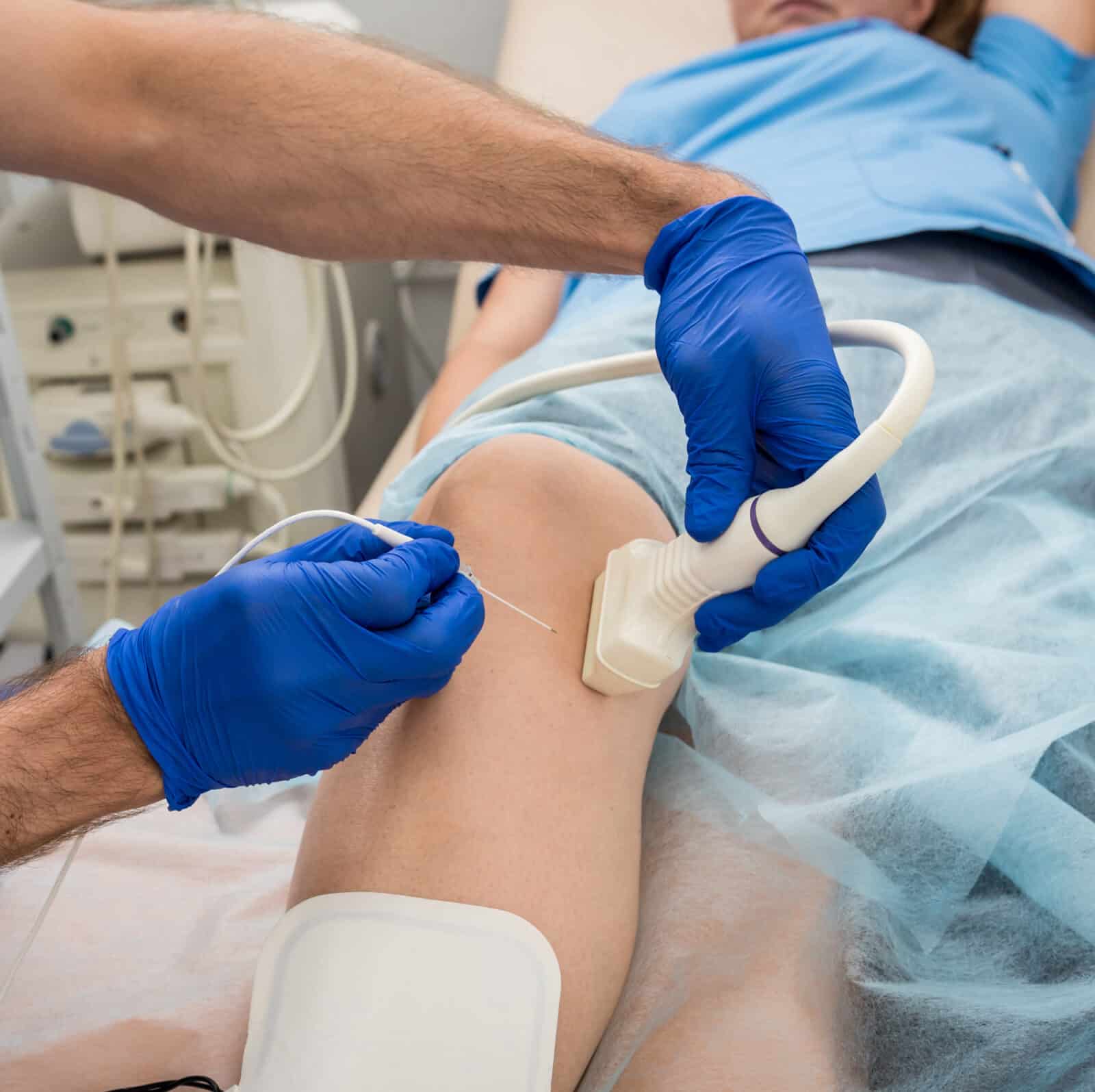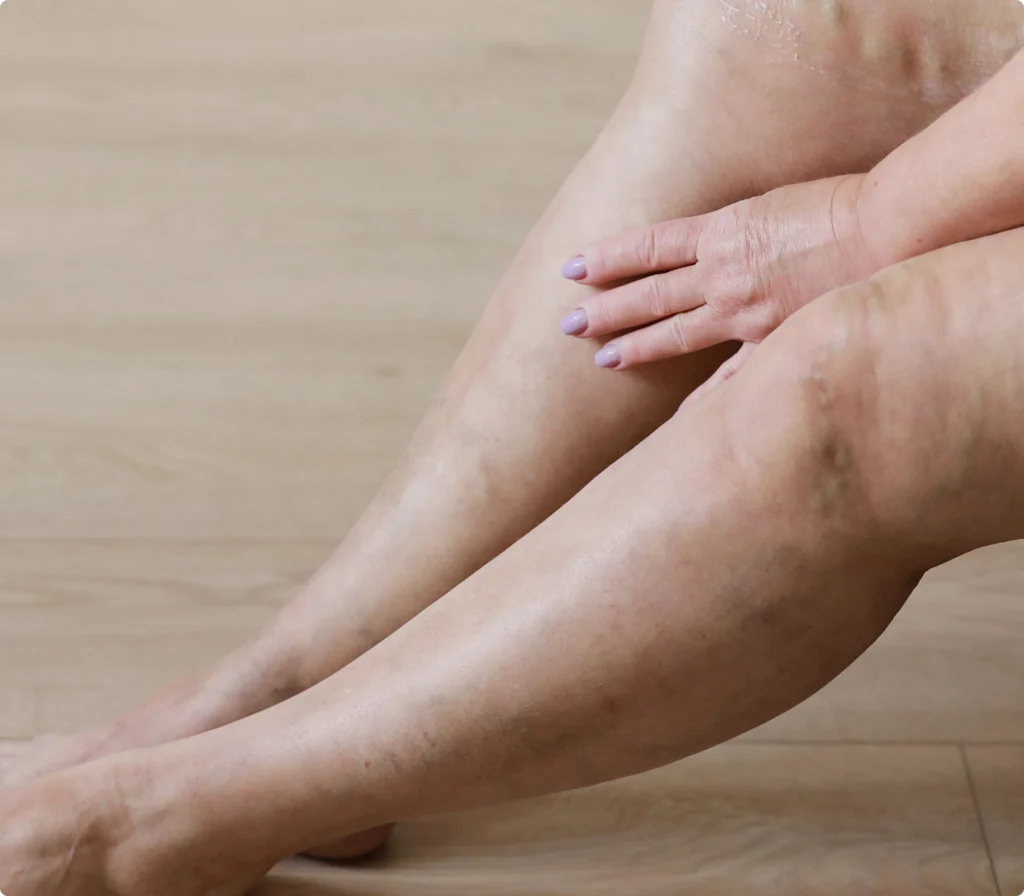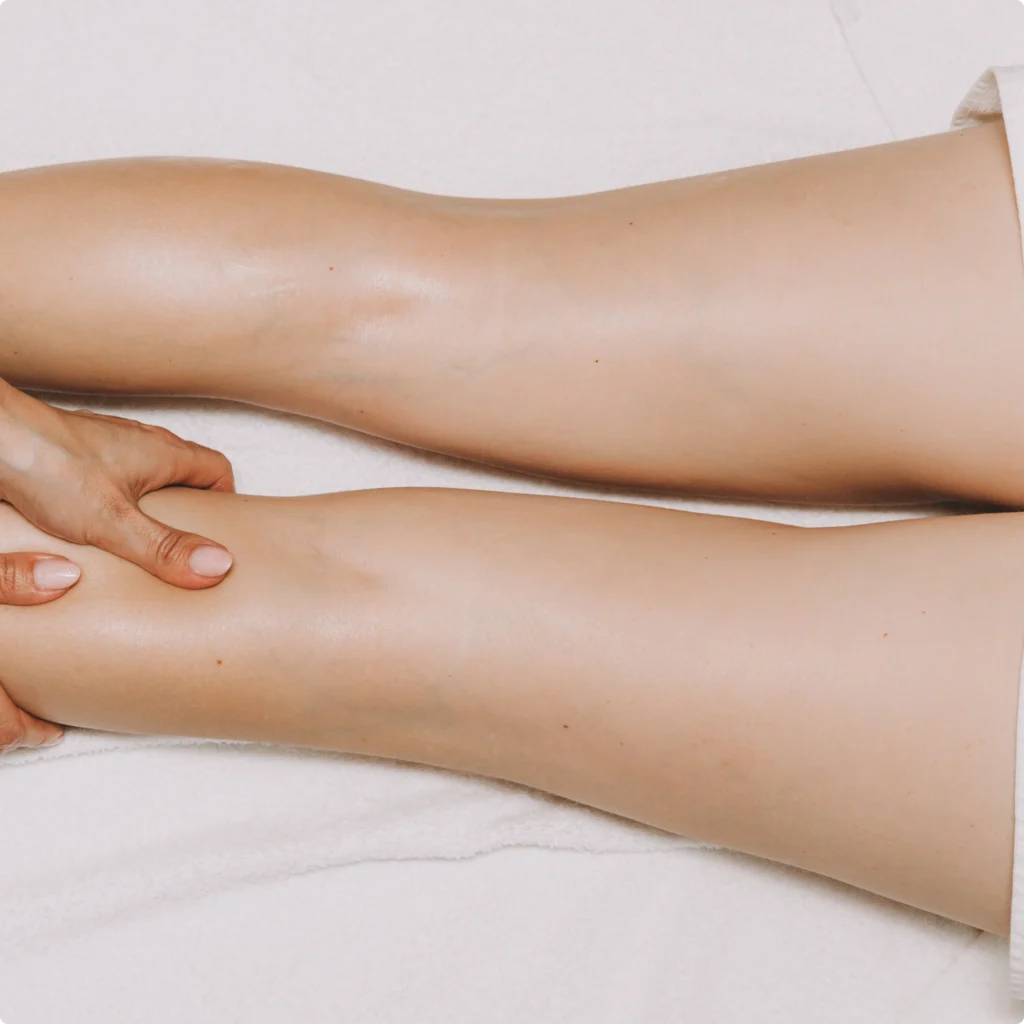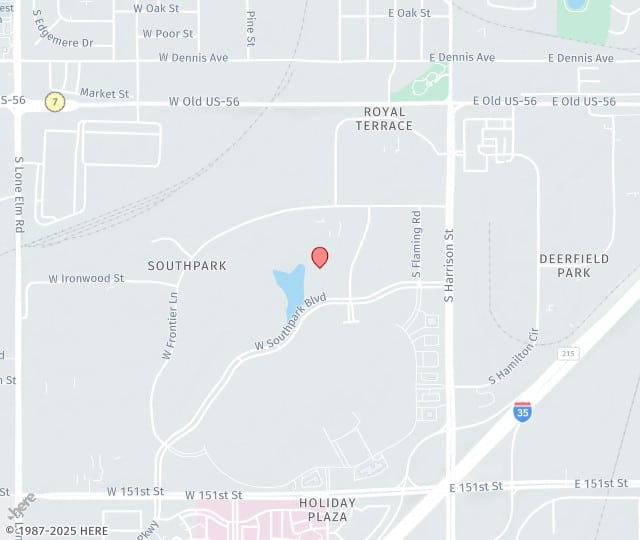Say Goodbye to Varicose Veins
This quick, minimally invasive treatment relieves discomfort and restores smoother, healthier-looking legs—no downtime required!
What Is Radiofrequency Ablation (RFA)?
At Vein-ity Vein Care Centers of Kansas, we offer Radiofrequency Ablation, a minimally invasive procedure using heat to gently close varicose veins, relieving symptoms and restoring the natural beauty of your legs.
Are you tired of dealing with the discomfort and unsightly appearance of varicose veins? Imagine finally being able to move with ease and confidence, without worrying about the pain or embarrassment caused by those bulging veins. Radiofrequency Ablation, or RFA, is a state-of-the-art procedure designed to treat varicose veins by using heat generated from radiofrequency energy.
This energy is delivered directly into the vein through a small catheter, causing the walls of the vein to collapse and seal shut. Once the vein is closed off, blood is naturally redirected to healthier veins, improving circulation and reducing the appearance of the varicose veins. RFA is not only effective but also minimally invasive, meaning you can get back to your daily life quickly—with little to no downtime.


Is RFA Right for You?
If you’re struggling with varicose veins that cause discomfort, swelling, or cosmetic concerns, RFA might be the perfect solution for you. Ideal candidates for RFA include individuals who:
Radiofrequency Ablation
The Benefits of Radiofrequency Ablation (RFA)
How the RFA Procedure Works
Here’s what you can expect when you choose RFA at Vein-Ity:

Vein-ity is a Pro-Nox™ Comfort Zone
Safely Minimize Treatment
Pain, Stress, & Anxiety With
Pro-Nox™
Frequently Asked Questions
RFA is a minimally invasive procedure that typically involves local anesthesia, so patients may feel mild pressure but usually no significant pain.
While RFA provides long-lasting results by permanently closing treated veins, new varicose veins can develop over time, potentially requiring further treatments.
Most patients can resume normal activities within 24-48 hours, though some may experience minor bruising or discomfort for a few days.

